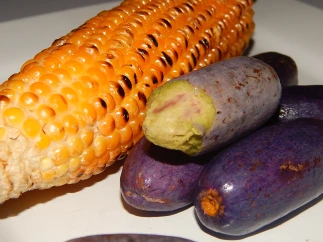For a long time, most people believed that women of African heritage rarely had endometriosis. Because of the long diagnostic delays, restricted access to diagnosis and care, and an absence of research. These indices have made the belief true that endometriosis is not common among African women.
Endometriosis is a painful disorder in which tissue resembling the uterus's inner lining grows outside the organ. The condition frequently affects the tissue lining the pelvis, fallopian tubes, and ovaries.
Endometriosis in African women
Due to inconsistent findings from research conducted in various African nations, the precise prevalence rate of endometriosis remains uncertain. Because of the historical bias and a lack of awareness among healthcare professionals, endometriosis has been falsely stated to be uncommon among African women despite being an illness that affects an estimated 176 million women globally.
The disparity in prevalence reported by the various authors could be due to healthcare accessibility, variations in endometriosis diagnosis techniques, endometriosis classification, and study sample size.
There is a lack of adequate endometriosis care in Africa among the general public and medical professionals. This is due to several factors, including expensive diagnostic costs, a shortage of qualified experts, and societal taboos around menstruation that prevent patients from discussing their symptoms. Educating the public about endometriosis could enhance endometriosis diagnosis and treatment in Africa.
5 uncommon signs of endometriosis in African women
Constant tiredness: The majority of affected women experience recurring tiredness coupled with pain, insomnia, depression, and work-related stress.
Bowel movements: Additionally, you can feel pain or discomfort when passing gas. However, this can change based on the type of endometriosis.
For instance, constipation, painful bowel motions, and rectal bleeding are frequent symptoms of rectovaginal endometriosis, a condition in which nodules damage the rectum.
Breathing difficulties: Rarely, thoracic endometriosis can result in symptoms specific to the chest and lungs, such as coughing up blood and shortness of breath.
This disorder is caused by the growth of tissue similar to endometrial tissue inside the chest cavity, which frequently affects the lining of the lungs and other chest structures.
Changes in the urine: Studies reveal that patients with endometriosis more commonly report urinary tract symptoms than those without the disease.
Typical symptoms consist of an urgent need to go to the bathroom (even if you just did), a feeling of difficulty emptying the bladder, blood-tinged urine, increased frequency of urine, discomfort, burning, or other feelings while urinating, and a sensation of swollen or enlarged breasts.
Acne severity: Previous research on severe teenage acne suggests an increased risk of endometriosis development. Severe acne can be noticeable, making it a helpful indicator for early endometriosis detection.
Optimising the care provided to women with endometriosis cannot be overstated. Endometriosis data are scarce in Africa. Hence it is important to keep this condition in mind, raising awareness of this crippling chronic illness, improving diagnosis skills to enhance endometriosis care, and lowering the disease's personal and social costs.
Frequently Asked Questions (FAQs)
Is a black period a sign of endometriosis?
Dark brown or black period blood might also indicate other underlying health issues of endometriosis.
Can I treat endometriosis with home remedies?
There are home remedies to manage symptoms of endometriosis, such as rest, dietary changes, and pelvic massage. However, they do not treat endometriosis.










Comments